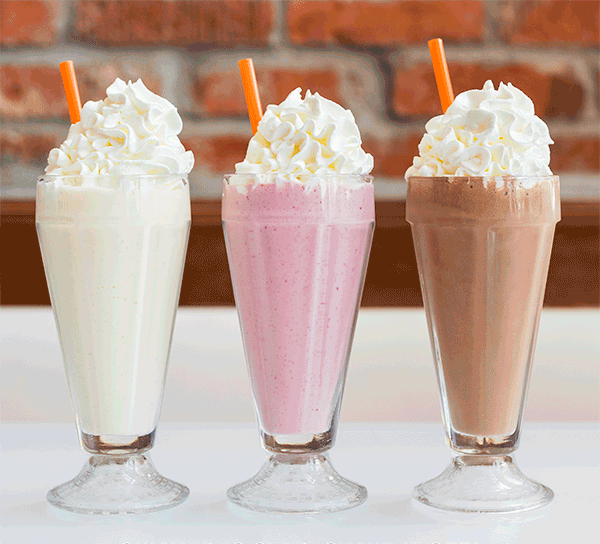- The Daily Tonic
- Posts
- Fear-based diet culture sucks.
Fear-based diet culture sucks.
Plus: Is fructose causing Alzheimer’s?
Monday. Happy President’s Day. Hat’s off to everyone enjoying a three-day weekend. And to everyone else who still had an alarm (or a toddler) to wake them up early this morning, we salute you. After all, there’s no rest for the weary.
Moving on to the latest and greatest in nutrition research, does our perception of the foods we eat change the impact those foods have on our health? Let’s dive in.
DEEP DIVE
The Power Of Perception
We are all just doing our best. We try to eat the right foods, avoid processed junk, move our bodies, hydrate throughout the day, and get plenty of quality sleep at night. Unfortunately, the nutrition piece of the puzzle can feel so complicated sometimes. What foods are good for us? What foods are bad? How much is too much?
Now, imagine a world where something like a creamy, decadent milkshake doesn’t just taste good but is also considered healthy. Sounds like fake news, doesn’t it? Recent research suggests that this scenario might not be as far-fetched as it sounds—all because of the power of perception.
In a fascinating study that blurs the lines between what we eat and how we think about what we eat, scientists uncovered that the way we perceive the healthiness of food can significantly influence how our bodies react to it.
Participants in the study were given one of two drinks: a milkshake labeled as high-fat and high-sugar or another described as low-fat and low-sugar. A third group was given just water. The twist? Both milkshakes were actually the same, loaded with sugar and fat. Yet, the bodies of those who believed they consumed a “healthier” milkshake reacted differently, showing better arterial health—similar to the group who just drank water.
This experiment highlights the “nocebo effect,” where negative expectations about something can lead to worse outcomes. In contrast, positive beliefs, even about a high-fat, high-sugar milkshake, can lead to better physiological responses.
To be clear, this doesn’t mean we should indulge in unhealthy foods all the time, thinking we can just manifest essential nutrients into a slice of pizza. However, it emphasizes that our bodies’ reactions to food are not just about the food’s nutritional content but also about our perceptions and beliefs.
Who knew?
The findings suggest that fearing certain foods because they’re labeled as “unhealthy” might do more harm than good. Instead, adopting a balanced view of nutrition is crucial, recognizing that no food is inherently bad. Moderation is essential, and understanding that “the poison is in the dose” can help us maintain a healthier relationship with food and better health outcomes in the long term.
This study could have profound implications for how we approach eating and dieting. It supports the idea that enjoying food without the guilt often associated with “cheating” on a diet might be beneficial for our health.
Depending on the health circles or TikTik influencers you follow, you’ll always hear about “bad foods” you should avoid at all costs. Seed oils will make you inflamed, meat gives you cancer, vegetables have “anti-nutrients,” fruit has as much sugar as candy, carbs make you fat, fat makes you fat, protein is bad for your liver, there is plastic in the water, yellow 5 gives you can cancer, rice is full of heavy metals, yadda yadda.
If you follow all the nutrition advice out there, you’ll run out of things you can eat. Now, of course, there are foods you should limit your consumption of more than others, but this constant fear that certain foods are going to kill you just isn’t helpful. And clearly, our perception of these foods really impacts our health.
The key takeaway? Our thoughts about food can have real, measurable impacts on our health. If you convince yourself that a cheat meal or occasional indulgence will derail your health, you are only making it more likely that it will derail your health. This is why the fear-based diet culture peddled by many nutrition influencers is counterproductive.
There is no such thing as “bad foods.” There are only “bad habits.” By shifting our perceptions that certain foods are good and others are bad and focusing on balanced, mindful eating, we can enjoy our meals and maintain our health, proving that sometimes, perception truly is reality.
SUPPORT US
Support Our Team 🧡
We're all about making your journey towards better health enjoyable and insightful. By becoming a member of The Daily Tonic family, you're not just supporting us, you're elevating your own wellness journey!
We believe in the power of community and the impact of your support. Your membership helps us continue delivering the best health and wellness newsletter around. If you enjoy starting your day with a dose of wellness wisdom from The Daily Tonic, consider joining us as a member.
